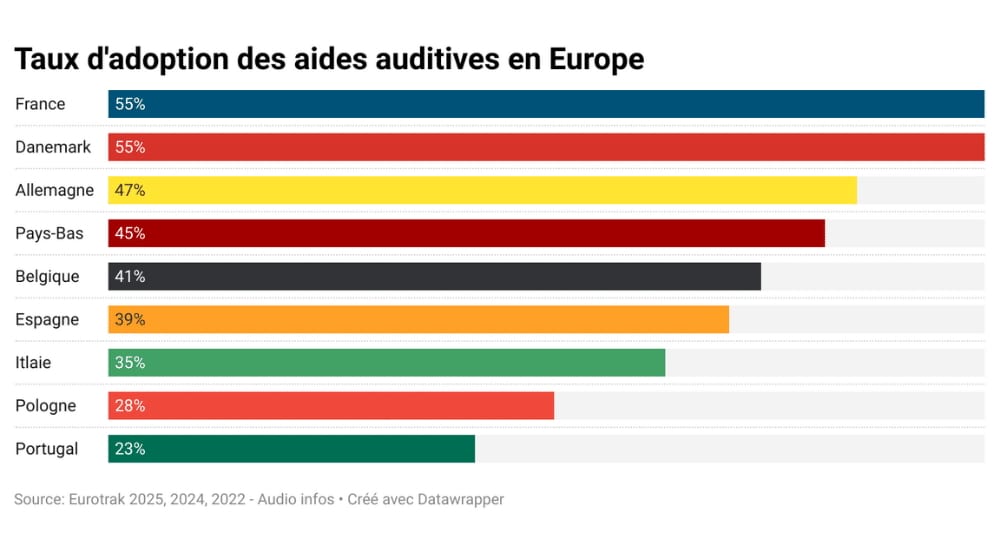ACHIEVE study results show no clear effect of hearing aids on cognitive decline
No reduction in 3-year cognitive decline from hearing intervention. The long-awaited findings of a US randomised controlled trial are disappointing for audiology, but one aspect of the study offers hope.

Can the use of hearing aids and counselling reduce cognitive decline in cognitively healthy older adults with hearing loss? Answering this question – and refining those answers – was the aim of the ACHIEVE study, a multicentre, parallel-group, unmasked, randomised controlled trial of adults aged 70–84 years with untreated hearing loss and without substantial cognitive impairment, and led by Johns Hopkins researchers, notably Professor Frank R. Lin.
Taking place at four community study sites across the USA, ACHIEVE followed two groups of older adults, one participating in a long-standing observational study of cardiovascular health (Atherosclerosis Risk in Communities [ARIC], and another of healthy de novo community volunteers. Participants were randomly assigned (1:1) to a hearing intervention (audiological counselling and provision of hearing aids) or a control intervention of health education and followed up every 6 months.
The primary focus of the study was to monitor 3-year change in a global cognition standardised factor score from a comprehensive neurocognitive battery. How would counselling and hearing aids affect cognitive decline over three years?
Published in The Lancet, the primary analysis of ACHIEVE registered results that will tend to disappoint the hearing device industry and audiology profession at all levels: “The hearing intervention did not reduce 3-year cognitive decline in the primary analysis of the total cohort.”
The anxiously awaited report from the ACHIEVE authors follows some years of investigation into the effects of hearing intervention on cognition, many of which progressively increased optimism that longer-term studies would eventually reveal clear cognitive benefits from hearing aid use. Longitudinal observational studies – such as those in this meta-analysis and this UK Biobank analysis have suggested that those with hearing loss who wear hearing aids are at reduced risk compared with those who do not, and that their risk becomes similar to those without hearing loss.
Do the ACHIEVE findings mean interventions to prevent dementia should target those at highest risk?
A Lancet comment signed by UCL London psychiatrists Gill Livingston and Sergi G. Costafreda underlines that it remained unclear from the ACHIEVE findings whether those people with hearing aids were those who were not going to develop dementia, and they ask whether interventions to prevent dementia should target those at highest risk? This angle of focus emerges from the one aspect of the ACHIEVE findings that does show – although with a challengeable degree of certainty – that although the 3-year cognitive change was not significantly different between the hearing intervention and health education control groups, hearing intervention did link to a 48% reduction in three-year cognitive change compared to the control group.
This finding, described as “enormous” by the commenting UCL Psychiatry authors, was, they added, also potentially “spurious”, its validity dependent upon many further trials. Livingston and Costafreda do however remain optimistic about the role of hearing intervention in cognitive decline. “Overall, the findings from this [ACHIEVE] study are hopeful. Hearing aids could really make a difference for populations at risk of dementia,” they hold.
Source: The Lancet


